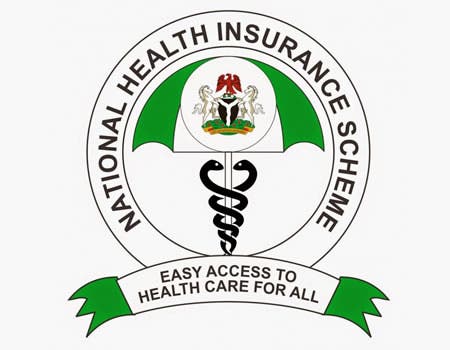The National Health Insurance Scheme (NHIS) on Tuesday said that the scheme was not for government workers alone but for all Nigerians.
The Executive Secretary, NHIS, Professor Nasir Sambo, made this known at the 2021 Lagos State International Trade Fair.
Sambo represented by Mr Femi Akingbade, Zonal Coordinator, NHIS Lagos said NHIS had introduced a programme for all families to benefit from the insurance scheme.
He said that the programme was for groups, individual and Family Social Health Insurance Programme (GIFSHIP) which was launched in November 2020.
According to him, there is a notion in which people believe that health insurance is for people that work for the government and that is what we are here to change today.
“The national health insurance scheme is not only for those that are employed by the Federal Government.
“We are actually creating value, programmes for individuals, family members and groups.
“And in line with that, we are partnering with the state government to be able to make sure that health insurance is mandatory at all levels and also for all citizens,” he said.
He noted that most times, people do not prepare for the catastrophic nature of health care adding that the cost of health care today was so astronomical.
Sambo said that the cost of health care could actually push people into poverty.
“With health insurance, you actually prepay for when you are going to need the health care and that is why we are here today.
“We want to reiterate the stand of NHIS because our main function is the provision of affordable and quality health care services to all Nigerians.
“The country is shifting from communicable to non-communicable diseases, and the number of people being diagnosed with non-communicable diseases is on the rise and the cost of treating the disease is high.
“With insurance, all these things can be curbed,” he said.
Dr Kapoona Etena, Deputy Manager, Former Sector Department, NHIS noted that the criteria to join the scheme was the ability to pay or be paid for.
She said that individuals and philanthropists could pay for the low-income earners.
Etena said that it had three contributory rates: individual which had up to three persons at N45,000 per annum; family, minimum of four and up to nine persons at N 60,000 per annum.
She said that for the family, each additional person would pay N15, 000 and for the group, it had a minimum of ten persons at the rate of N150, 000.
“The benefits are under three categories; primary, secondary and tertiary care. What the primary cannot carry the secondary will and likewise the tertiary.
“This programme formalises the informal sector, it brings everyone on board, it is affordable and very comprehensive,” she said.
Earlier, Mrs Toki Mabogunje, the President of, Lagos Chamber of Commerce and Industry (LCCI) urged the Federal Government to increase the budgetary allocation for health care services.
Mabogunje said that this should be done as a deliberate step to enhance Nigerians human development in the health care sector.
“We are not doing well at all in this area.
“Not just for pushing the allocation, we must ensure that funds are released for the stable institute of health care so that they can provide sound services to our people.
“This will also stop Nigerians who travel abroad for modern care and spend our hard-earned money outside,” she said.
Mabogunje represented by Dr Michael Cole, Deputy President, LCCI, urged the NHIS for more enlightenment so that more people would enter the scheme.
She urged the NHIS to build a formidable stakeholders platform, including representatives of health institutions, accredited health care providers, Federal ministries and the private sector.
“This platform will drive discussions on critical issues on health service delivery and put up measures to ensure stakeholders satisfaction as well as engender transparency and accountability.
“This is very key because it will involve all those who are involved in delivering medical care services to people,” she said.

